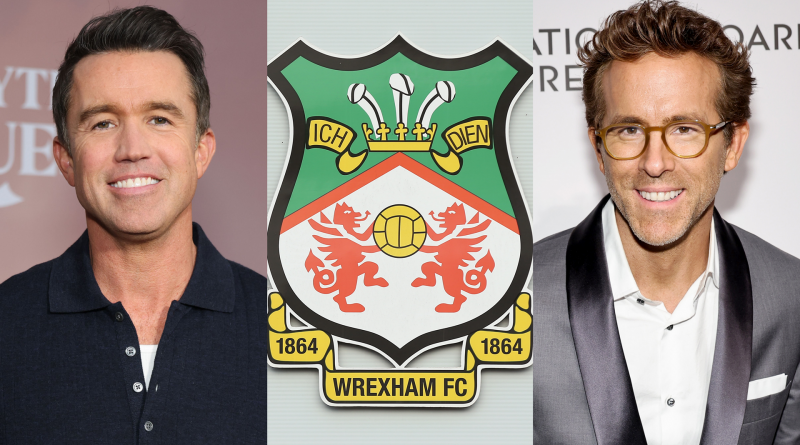Wrexham takeover twist: McElhenney made Reynolds a partner
Wrexham takeover fever has gripped north-east Wales ever since Rob McElhenney and Ryan Reynolds swept into the SToK Cae Ras in 2021, but few fans know just how close the Hollywood script nearly took a very different turn.
Inside the Wrexham takeover decision
The Wrexham takeover began as a solo passion project for McElhenney. Fresh from “It’s Always Sunny in Philadelphia” success, he was hunting for an under-the-radar club that could be transformed with smart investment and storytelling. While crunching numbers, he drafted an email to Reynolds—then only a friendly acquaintance—asking if the Deadpool star fancied becoming a shirt sponsor. That was the entire pitch: lend some celebrity sparkle, cut a cheque, roll the credits.
Yet the longer McElhenney mulled over the Wrexham takeover plan, the more he realised a simple sponsorship would undersell Reynolds’ business acumen. Aviation Gin, Mint Mobile and even Maximum Effort Productions had shown just how quickly the Canadian could turn modest ventures into global brands. “Why limit him to the sleeve when he could help run the whole club?” McElhenney told The Dan Patrick Show. That light-bulb moment ripped up the first draft and birthed a partnership.
How Reynolds turbo-charged the project
Reynolds read the revamped message, boarded a trans-Atlantic Zoom call and asked one question: “Can we make the club matter to people who’ve never watched a minute of football?” From there the Wrexham takeover accelerated into blockbuster mode. Initial £2 million funding morphed into comprehensive investments in sports science, recruitment, community programmes and a Disney+ docuseries that now boasts multiple Emmy wins.
Match-day queues lengthened, shirt sales exploded, and the Racecourse Ground began a phased redevelopment. On the pitch, Phil Parkinson marshalled back-to-back promotions, hoisting Wrexham from the National League to League One and—last spring—into the Championship. Locals speak of “the Red Dragon roar” returning to a town that had endured more than a decade of footballing frustration.
The numbers behind the meteoric rise
Pre-takeover, Wrexham’s valuation hovered around £2 million. Today analysts peg it at near £300 million, a staggering 150-fold increase. Commercial revenue leapt from £1.7 million to over £18 million per annum, driven by international merchandising and broadcast rights. The club’s global social-media following, once stuck below 50,000, now exceeds 3 million, out-punching several Premier League outfits.
Key to this growth has been a clear alignment between cinematic storytelling and sound sporting strategy. The owners refuse to breach Financial Fair Play limits, focusing instead on sustainable wage structures and academy pathways. “We’re caretakers, not sugar daddies,” Reynolds quipped, underscoring that the Wrexham takeover was never intended as a vanity play.
Wider impact of the Wrexham takeover on the community
Tourism in the town has spiked 20 percent since 2021. Local hotels report record occupancy, while independent cafés along Mold Road see match-day revenues triple. The club’s Foundation has ploughed funds into disability football, girls’ academies and mental-health outreach, ensuring the Hollywood halo benefits more than just the first-team squad.
Premier League dreams—and financial realities
Promotion to the Championship was a watershed, but the climb is far from over. To target the Premier League, McElhenney and Reynolds acknowledge a third investor may be required. The duo have openly invited billionaire partners—provided they share the ethos of community-first progress. Negotiations are exploratory, yet any fresh capital would likely be funnelled into player recruitment, stadium expansion and data analytics infrastructure.
Why the partnership works
1. Complementary skill sets: McElhenney handles day-to-day football decisions; Reynolds amplifies global reach.
2. Transparent communication: Regular fan forums explain spending, strategy and setbacks.
3. Emotional investment: Both owners attend fixtures, celebrate in local pubs and star in charity events.
Their united front contrasts sharply with fractured ownership models elsewhere, reinforcing how the Wrexham takeover became a case study in modern club stewardship.
Lessons for future sporting investors
The Wrexham takeover highlights three crucial pillars: authenticity, scalability and sustainability. Authenticity wins trust; scalability turns local stories into worldwide content; sustainability ensures dreams outlast the headline cycle. Clubs eyeing new money would do well to remember that a famous face alone does not guarantee success—alignment of vision does.
Our view
Turning Reynolds from mere sponsor to co-owner was the masterstroke that super-charged the entire Wrexham takeover. It fused two creative powerhouses with complementary talents and—more importantly—put the long-suffering supporters at the centre of the narrative. If the Red Dragons do roar into the Premier League within the decade, this moment of foresight will be remembered as the catalyst that changed not just a club, but a community.
Your global gateway to nonstop football coverage:
News Goal
Share this content:

